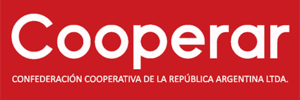The elections will be during the ICA General Assembly to be held in Kuala Lumpur, Malaysia, on November 17th. He is starting a tour across the four Regions of the International Cooperative Alliance. His platform has already gathered strong support in Argentina as well as continental and in other countries of the world.
The President of the Cooperative Confederation of the Argentine Republic made official his candidacy for the presidency of the International Cooperative Alliance, to be defined on November 17 in Kuala Lumpur, Malaysia.
Guarco, who emerged from the Cooperative Federation of Public Services in Buenos Aires, FEDECOBA, and the Coronel Pringles Cooperative, has been at the head of the Confederation for six years and, since 2013, has been working actively in the international arena for a more open and genuine cooperativism more close to their bases.
At the time of promoting its nomination, the Argentine cooperative movement considered crucial to renew the leadership of the Alliance several of his qualities, such as trajectory, consistency and commitment. The Confederation, promptly, unanimously approved the proposal during an Assembly in mid-July. The others national partners of the Alliance also ratified their support.
A few days ago there were strong expressions of support in the Board of Directors of Cooperatives of the Americas, on which Guarco is second vice-president, and in other latitudes are being highlighted many ideas in common regarding the platform presented by the candidate. In the coming weeks, are planned visit for the four regions: Americas, Europe, Asia-Pacific and Africa.
«The cooperative seed that began to grow in me so many years ago in my town was then enriched through dialogue with colleagues from all parts of the word, who share the need to consolidate our movement from the grass roots», said Guarco in a message at the time of launch his candidacy.
“Our International Cooperative Alliance, founded in 1895, has today over 300 organizations from more than 100 countries, representing nearly 1 billion people worldwide. Can we imagine the power of a movement of this magnitude if it is well represented by its global leaders?”
